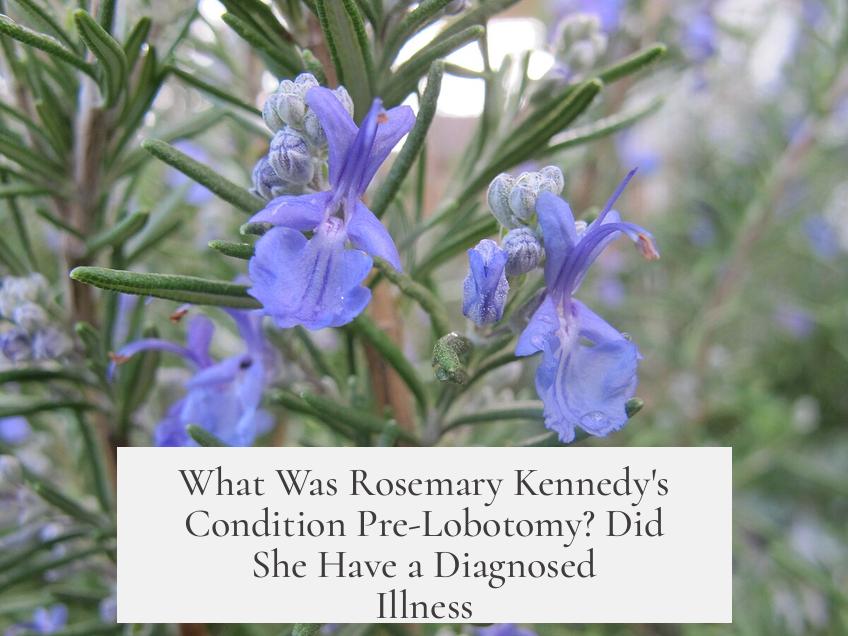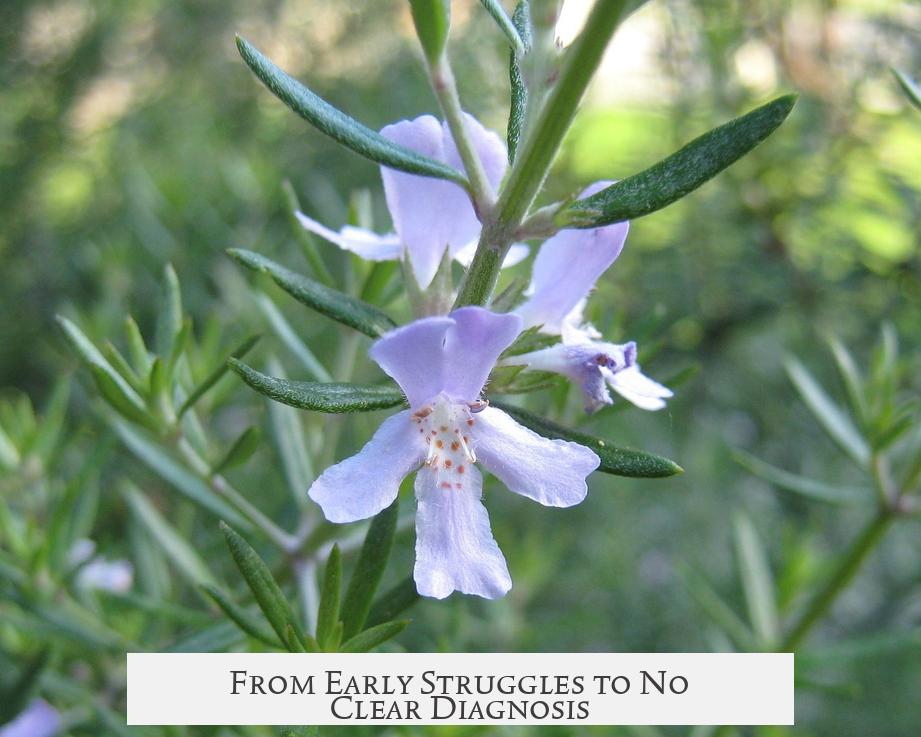Rosemary Kennedy’s condition pre-lobotomy involved significant learning disabilities and behavioral difficulties but no formal medical diagnosis. Despite early signs of developmental challenges, the Kennedy family never obtained a definitive diagnosis.
From childhood, Rosemary showed delayed learning abilities. She attended various educational settings—from public schools to private boarding schools for children with learning issues, a convent school, and homeschooling—to find suitable support. None fully met her needs. Her tutors and educators noted her need for constant supervision and care. Miss Hourigan, dean of one such school, emphasized this persistent requirement for protection and supervision.
Rosemary’s parents tried numerous treatments. These included gland therapy prescribed by Dr. Charles Lawrence and a personalized educational curriculum inspired by John Dewey’s methods, recommended by Dr. Walter Dearborn. Despite these efforts, her mental skills regressed over time. Rose Kennedy described in her memoirs that Rosemary’s mood became more volatile, with rising irritability, tantrums, and unpredictable behavior. Sometimes these episodes involved physical aggression or convulsions.
Throughout this period, no specific or consistent diagnosis emerged. Doctors and therapists could only identify general learning disabilities and behavioral symptoms. They documented functional impairments but could not pinpoint a precise medical or psychiatric condition. This lack of clear diagnosis led the family to pursue increasingly intensive interventions.
The decline and escalating behavioral challenges prompted Rosemary’s parents to consent to a lobotomy, intended as a last resort to stabilize her condition. This procedure reflected the limited understanding and options available at that time for her developmental and psychological difficulties.
| Aspect | Details |
|---|---|
| Learning Disability | Recognized early; educational difficulties despite multiple settings |
| Behavioral Symptoms | Tension, irritability, tantrums, physical aggression, convulsions |
| Medical Diagnosis | No formal or definitive diagnosis achieved |
| Treatments Tried | Gland therapy, personalized curriculum, educational interventions |
| Outcome | Condition worsened, leading to lobotomy as final treatment |
- Rosemary Kennedy had marked learning and behavioral challenges but no confirmed diagnosis before lobotomy.
- Various schools and therapies failed to stabilize or improve her condition.
- Her deteriorating mood and behavior led to more drastic medical intervention.
What Was Rosemary Kennedy’s Condition Pre-Lobotomy? Did She Have a Diagnosed Illness?

Rosemary Kennedy’s condition before her lobotomy is best described as a complex struggle with learning disabilities, behavioral challenges, and mental regression—yet without any formal diagnosis or clear medical label. Despite numerous attempts to understand and treat her difficulties, concrete answers remained elusive, leaving the famous Kennedy family grappling with an enigmatic and heartbreaking situation.
So, what was going on with Rosemary? Let’s dive into the specifics.
From Early Struggles to No Clear Diagnosis

Rosemary was born into one of America’s most prominent families, but her education journey was anything but straightforward. Since a young age, she faced a learning disability that hindered her progress. However, there was no official diagnosis confirming exactly what she was dealing with. The Kennedys sought answers tirelessly, but the medical community didn’t hand over any clear labels.
Her education bounced between various settings, revealing how challenging it was to find the right fit for her needs. Public schools, private boarding schools for children deemed “slow,” homeschooling, and even a Sacred Heart convent all played parts in this story. Yet, none of these environments seemed to provide a solid foundation or breakthrough for Rosemary’s learning difficulties.
One telling moment comes from Miss Hourigan, the dean of the boarding school Rosemary attended for a time. She observed that Rosemary required “constant checking” and “continual protection or supervision.” This wasn’t about occasional help but a comprehensive oversight that couldn’t be relaxed without risking her well-being. That’s a big ask for any caregiver, let alone the tight schedules the Kennedy family kept!
Behavioral Issues and Mental Regression Added Complexity

As if the learning disability itself wasn’t enough, Rosemary exhibited increasingly troubling behavioral symptoms. Rose Kennedy, her mother, wrote in her memoirs about a noticeable decline in her daughter’s mental skills after a period spent in England. This regression was coupled with a change in personality, shifting from what was described as a “customary good nature” to growing tension and irritability.
Imagine a teen who, instead of gaining confidence and skills, loses ground and grows frustrated to the point of tantrums, rages, and even convulsive episodes. Reports even mention that Rosemary sometimes broke things or lashed out physically during these outbursts, making care and supervision all the more demanding.
Treatment Attempts That Didn’t Quite Hit the Mark

The Kennedys didn’t sit idly by. They actively sought help from specialists and tried various approaches in hopes of improvement. One notable treatment was “gland therapy,” overseen by Dr. Charles Lawrence. At the time, it was believed that glandular imbalances might explain some developmental delays. Additionally, they worked with Dr. Walter Dearborn, who recommended a personalized curriculum based on the educational philosophies of John Dewey. These efforts reflect the family’s commitment to Rosemary’s progress, but, sadly, these experiments provided limited success.
It’s telling that despite this gamut of interventions—medical and educational—Rosemary’s condition worsened, not improved. This trend pushed the family toward a drastic measure: the lobotomy. This operation represented a final-ditch effort to bring some stability to her life and their family’s well-being, even if it came with serious risks and controversy.
The Elusive Diagnosis: What Did She Actually Have?

To sum things up, Rosemary Kennedy had significant functional impairments in learning and behavior, but no clear-cut medical diagnosis was ever recorded before the lobotomy. In modern terms, we might guess conditions like intellectual disability or an autism spectrum disorder, but back then these terms were neither clearly defined nor commonly used.
The medical jargon of the era fell short of capturing recognizable conditions that could explain her symptoms definitively. The tools and understanding needed to pinpoint what was “wrong” simply weren’t available. So we only have descriptions of her challenges: learning difficulties, emotional instability, and behavior that demanded constant supervision.
Reflections on Rosemary’s Story
Why does this matter? Rosemary’s experience highlights how society—and even medical science—has evolved in understanding developmental and cognitive disabilities. Today, diagnosis and early intervention are much more precise. Families would face fewer misunderstandings and less guesswork.
Her story also urges us to consider the human side behind medical labels. The Kennedys were looking for answers, for something to explain their daughter’s struggles and ease the burden on their family. No diagnosis meant no clear path forward, which must have been devastating.
Have you ever faced a situation where no clear diagnosis was at hand, making treatment feel like fumbling in the dark? Rosemary’s case is a powerful reminder of the importance of thorough evaluation and compassionate care.
In Closing: Rosemary’s Pre-Lobotomy Condition Was Characterized More by Challenges Than Diagnosis
In short, Rosemary Kennedy battled significant learning and behavioral difficulties without a definitive diagnosis before her lobotomy. The struggle was described through her challenges, not clinical terms—an important distinction that underscores the evolution of medicine and disability awareness.
That she lacked a diagnosis doesn’t diminish the very real hardships she faced, nor does it lessen the family’s efforts to support her. Instead, it invites us to look deeper, ask better questions, and never give up on understanding those who don’t fit a simple medical box.
What would current medical science say about Rosemary today? Would a diagnosis help? Could modern therapies offer hope that was once unimaginable? These are questions worth pondering.
What kind of learning difficulties did Rosemary Kennedy have before her lobotomy?
Rosemary Kennedy had a learning disability that affected her education. She struggled despite attending multiple schools and receiving private tutoring. Her learning issues required constant supervision but never fully improved.
Did Rosemary Kennedy have a formal medical diagnosis before her lobotomy?
No formal diagnosis was made. Despite many tests and treatments, her condition was never precisely identified. Her challenges were described by symptoms and behaviors rather than any specific illness.
What behavioral symptoms did Rosemary show before her lobotomy?
She showed increasing irritability and unpredictable moods. Her behavior included tantrums, rages, breaking objects, and convulsive episodes. Her mental skills also regressed over time.
What treatments were tried before deciding on a lobotomy?
Rosemary underwent gland therapy and followed a special curriculum designed for her learning needs. Despite these, her condition worsened, which led her parents to consent to a lobotomy as a last resort.
Why was it difficult to diagnose Rosemary Kennedy’s condition?
Her symptoms did not fit a clear medical diagnosis. Her behavioral and learning challenges were complex and fluctuated. Efforts to find a diagnosis with different specialists were unsuccessful.




